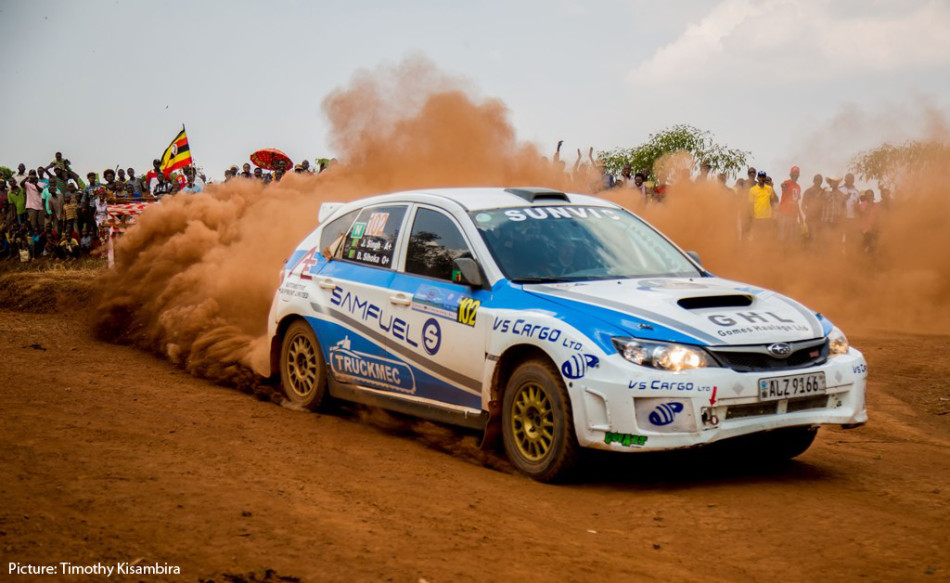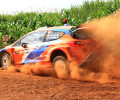AUTO #12: Kings of the Mountain

The Rwanda Mountain Gorilla Rally was started as a reconciliation event three years after the horrific 1994 genocide against the Tutsi people that claimed almost a million lives. Originally called the Fraternity Rally, it has since grown into a fully-fledged event that is included in the FIA African Rally Championship.
“We were trying to unite people, to do something not only for sport but that can contribute to reconciliation,” explains Christian Gakwaya, President of event organisers the Rwanda Automobile Club (RAC). “At that time, however, we were not ready to organise a rally on our own. That is why we decided to do a cross-border event.”
That cross-border event, organised in tandem with colleagues in Uganda, eventually morphed into a national Rwandan event, which this year celebrated its 15th anniversary with a successful event that attracted an entry list of 26 crews and which formed round five of the seven-round FIA African Rally Championship.
“The level of competition has improved from hosting Ugandan and Burundian drivers to seeing people come from Kenya, South Africa, Belgium and Zambia among others. I can say that progress has been slow but it is now reaching another level.”
He also points to the increasing professionalism of the organisation: “We are now close to international standards in terms of documentation, regulations, technical and other details.”
It hasn’t all been rosy for the RAC, however, with the biggest challenge in organising an event of such magnitude being the club’s financial limitations. “We are a non-profit organisation and we depend on sponsorship and partners who sometimes offer financial and logistical support,” explains Gakwaya. “Sometimes it is very hard if we do not have the support of big sponsors.”
FIA support
Organising the event in a country without a traditional motor sport infrastructure has never been easy and Gakwaya is quick to point to the support the RAC has received from the FIA in improving the organisation of the rally.
“For the last two years we have been receiving funds to organise trainings for officials, young drivers and security to ensure the safety of the rally,” he explains. “We currently have three programmes being funded by the FIA.”
This has come in the form of grants from the FIA’s Motor Sport Safety Development Fund, which has supported projects around the world. It has helped to raise the standards of marshalling and driver training, particularly in developing motor sport regions such as Rwanda.
For this year’s rally, the FIA sent an observer, a steward and a technical delegate to officiate and also offer guidance throughout the event, especially with regards to maintaining international standards. “They guide us on what we can do to improve because normally they have more experience than us.
“In the past we had unqualified officials, which is no longer a problem because now we have qualified young people who have the knowledge and keep improving and have been trained.”
This year’s rally saw up to 75 marshals involved in the event including course marshals, starters, safety workers, secretariat workers, support for results, registration, scrutineers and stewards.
Popularity
The result of the efforts both local and with international input is an event that is growing in popularity, among competitors and the local population.
“I was overwhelmed by the bends and hills. I’ve always known Rwanda as the land of a thousand hills, but wow, some of the stages are breathtaking. I had to stop and stare at the beauty of Rwanda,” says Ugandan competitor Desh Kananura.
Gakwaya adds: “Motor sport is becoming very popular. It is changing for each event. For example, last year when we had the super stage at Gahanga quarry, we had an estimated 3,000 people coming just for the spectator stage, which was an afternoon event.
“If we compare the national championships, if we have an event outside Kigali, we see people driving for two or three days to get to those places. It is really gaining in popularity and people have started liking and taking an interest in motor sport.”
The full ‘Kings of the Mountain’ feature about the past, present and future of the Rwanda Mountain Gorilla Rally will appear in Issue 12 of the FIA’s AUTO magazine, which will be published later this month.

 Facebook
Facebook Twitter
Twitter






